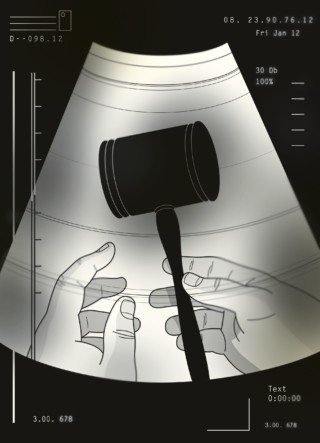Photo from Margaret Tablot’s New Yorker review of About Abortion
Why is it still so hard to get an abortion, 44 years after Roe v. Wade? That’s the question that Carol Sanger tackles in her new book, About Abortion, recently reviewed by The New Yorker. In her review, Margaret Talbot discusses the plethora of laws passed in the last few decades to punish people for seeking abortions. She highlights parental involvement for abortion laws as particularly onerous, citing our legal director, Susan Hays:
“Susan Hays, a lawyer who has represented pregnant minors in Texas for fifteen years, under the auspices of an organization called Jane’s Due Process, told me that about a third of these women did not have parents or legal guardians who were alive and could be located. Hays has helped unaccompanied minors from Central America who had been raped on their journey here, de-facto orphans whose mothers were dead and fathers were in prison, girls who were living precariously on their own to escape abuse at home, and, once, a young woman whose parents ran a meth ring and were planning to pimp her out.”
Talbot discusses a few particularly outrageous cases, including an Alabama minored denied a bypass because her status as a foster child was ruled to be evidence of her immaturity. She concludes with a quote from Sanger’s book:
“When abortion was a crime, the extralegal punishment for women was being pushed into the unsavory and dangerous world of illegal abortions,” Sanger writes. “Now that abortion is legal, the punishment (for minors at any rate) is embedded in the lawful hearings that young women must engage with in trial courts around the country. . . . It is as though if abortion can’t be made illegal, it can still be made to feel illegal.”
You can read the full article here, and you can support the work of Jane’s Due Process to help minors navigate the complex & onerous parental involvement laws in Texas here.



